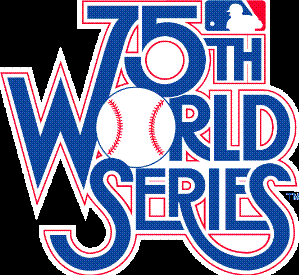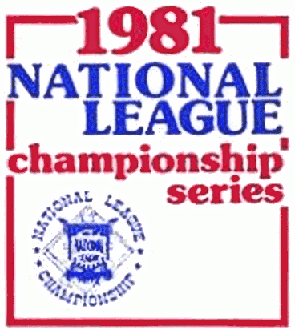
The 1981 World Series was the championship series of Major League Baseball's (MLB) 1981 season. The 78th edition of the World Series, it was a best-of-seven playoff played between the American League (AL) champion New York Yankees and the National League (NL) champion Los Angeles Dodgers. It marked their third Series meeting in five years and was their 11th overall Series meeting. The Dodgers won the Series in six games, as the Yankees had done in the teams' prior two Series meetings, in 1977 and 1978. This was the Dodgers' first title since 1965, their first victory over the Yankees since 1963, and third overall Series win over the Yankees.

The 1978 World Series was the championship series of Major League Baseball's (MLB) 1978 season. The 75th edition of the World Series, it was a best-of-seven playoff played between the American League (AL) champion New York Yankees and the National League (NL) champion Los Angeles Dodgers. In a rematch of the previous year's World Series, the Yankees won, four games to two, to repeat as champions and to win their 22nd World Series. As of 2024, it remains the most recent World Series to feature a rematch of the previous season's matchup.

The 1977 World Series was the championship series of Major League Baseball's (MLB) 1977 season. The 74th edition of the World Series, it was a best-of-seven playoff played between the American League (AL) champion New York Yankees and the National League (NL) champion Los Angeles Dodgers. The Yankees defeated the Dodgers four games to two to win the franchise's 21st World Series championship, their first since 1962, and the first under the ownership of George Steinbrenner. Played from October 11 to 18, the Series was televised on ABC.

The 1974 World Series was the championship series of Major League Baseball's (MLB) 1974 season. The 71st edition of the World Series, it was a best-of-seven playoff played between the American League (AL) champion Oakland Athletics and the National League (NL) champion Los Angeles Dodgers. The Athletics won the series, four games to one; after splitting the first two in Los Angeles, Oakland swept their three home games to close it out.

Steven Patrick Garvey is an American former professional Major League Baseball player who played first baseman for the Los Angeles Dodgers and San Diego Padres from 1969 to 1987.

Ronald Charles Cey, nicknamed "the Penguin", is an American former professional baseball player. He played in Major League Baseball as a third baseman from 1971 through 1987, most notably as an integral member of the Los Angeles Dodgers teams that won four National League pennants and one World Series championship. A six-time All-Star, Cey was named the World Series MVP after leading the Dodgers to victory during the 1981 World Series. He ended his career playing for the Chicago Cubs and the Oakland Athletics. Cey was nicknamed "The Penguin" for his slow waddling running gait by his college coach, Chuck "Bobo" Brayton.

David Earl Lopes is an American former second baseman and manager in Major League Baseball (MLB). He batted and threw right-handed. He played in MLB for the Los Angeles Dodgers, Oakland Athletics, Chicago Cubs, and Houston Astros; he managed the Milwaukee Brewers.

William Ellis Russell is an American former shortstop, coach and manager in Major League Baseball. Russell played his entire 18-year, 2,181-game career with the Los Angeles Dodgers as the starting shortstop for four National League pennant winners and one World Series championship team. He also served as the team's manager from 1996 to 1998.
The 1974 National League Championship Series was a best-of-five series in Major League Baseball’s 1974 postseason that matched the East Division champion Pittsburgh Pirates against the West Division champion Los Angeles Dodgers. It was the sixth NLCS in all. The Dodgers won the Series three games to one and lost the 1974 World Series to the Oakland Athletics.
The 1977 National League Championship Series was a best-of-five matchup in Major League Baseball’s 1977 postseason between the West Division champion Los Angeles Dodgers and the East Division champion Philadelphia Phillies. It was the ninth NLCS in all. The Dodgers beat the Phillies three games to one and went on to lose the 1977 World Series to the New York Yankees.
The 1978 National League Championship Series was a best-of-five matchup in Major League Baseball’s 1978 postseason between the West Division champion Los Angeles Dodgers and the East Division champion Philadelphia Phillies. It was the tenth ever NLCS and a rematch of the 1977 series between the same teams. The Dodgers beat the Phillies three games to one before they lost the World Series to the New York Yankees.

The 1981 National League Championship Series was a best-of-five playoff series in Major League Baseball’s 1981 postseason to end the 1981 National League season. It was the 13th NLCS in all. The series featured the first-half West Division champion Los Angeles Dodgers and the second-half East Division champion Montreal Expos. The Dodgers won the series three games to two over the Expos, thanks to a ninth-inning home run in Game 5 by Rick Monday in what has ever since been referred to as "Blue Monday" by Expos fans.

Romanus"Monty"Basgall was an American professional baseball player, manager, coach and scout. A former second baseman who appeared in 200 Major League Baseball games for the Pittsburgh Pirates, Basgall became a longtime member of the Los Angeles Dodgers' organization who served as the bench and infield coach for Hall of Fame managers Walter Alston and Tommy Lasorda for 14 seasons (1973–86). During that time, he worked with four National League pennant winners, as well as the 1981 World Series-champion Dodgers. Basgall was born in Pfeifer, Kansas, graduated from high school there, and attended Sterling College.
The 1979 Los Angeles Dodgers season was the 90th season for the Los Angeles Dodgers franchise in Major League Baseball (MLB), their 22nd season in Los Angeles, California, and their 17th season playing their home games at Dodger Stadium in Los Angeles California. The team finished the season in third place in the National League West. Near the end of the season, owner Walter O'Malley died, and the ownership of the team went to his son, Peter.
The 1978 Los Angeles Dodgers season was the 89th season for the Los Angeles Dodgers franchise in Major League Baseball (MLB), their 21st season in Los Angeles, California, and their 16th season playing their home games at Dodger Stadium in Los Angeles California.
The 1977 Los Angeles Dodgers season saw Tommy Lasorda in his first full season at the helm of the Dodgers, replacing longtime manager Walter Alston as manager of the team near the end of the previous season. The Dodgers won the National League West by 10 games and defeated the Philadelphia Phillies in four games in the NLCS, then lost to the New York Yankees in the World Series. This edition of the Dodgers featured the first quartet of teammates that hit 30 or more home runs: Steve Garvey with 33, Reggie Smith with 32, and Dusty Baker and Ron Cey, who both hit 30. The Dodgers duplicated this feat again 20 years later in 1997.
The 1974 Los Angeles Dodgers won the National League West by four games over the Cincinnati Reds, then beat the Pittsburgh Pirates in the NLCS before losing to the Oakland Athletics in the World Series.
The 1973 Los Angeles Dodgers finished the season in second place in the National League West with a record of 95–66.
The 1969 Los Angeles Dodgers finished in fourth place in the new National League West, eight games behind the Atlanta Braves. The Dodgers' record for 1969 was 85–77, which was nine wins better than 1968.
The 1968 Los Angeles Dodgers season was the 79th season for the Los Angeles Dodgers franchise in Major League Baseball (MLB), their 11th season in Los Angeles, California, and their 6th season playing their home games at Dodger Stadium in Los Angeles California. They improved upon their 73–89 record from 1967 to a 76–86 record and finished in seventh place in the National League standings, 21 games behind the St. Louis Cardinals. After the season, the Dodgers underwent some changes among the team management when long time general manager Buzzie Bavasi resigned to take over the expansion San Diego Padres. He was replaced by team vice-president Fresco Thompson. However, Thompson was diagnosed with cancer weeks after taking the job and died in November. Al Campanis became the new general manager for the following season.










